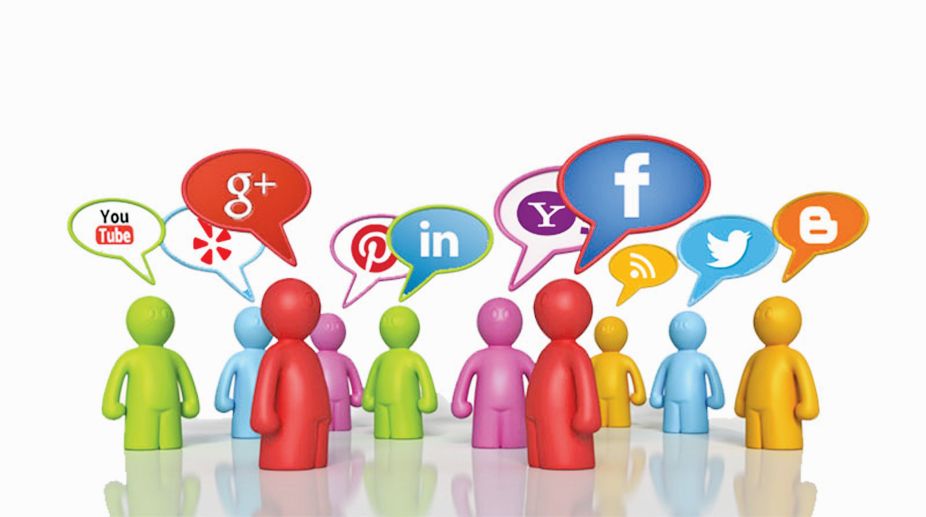The growth of technology across businesses and industries has been tremendous, over the past decade or so. The hospitality industry has also witnessed a digital revolution and tried to cope with it.
The industry’s constant endeavour is to transform it’s products, services, infrastructure and other offerings to meet the requirements of the digital age.
Advertisement
New trends and technological advancements have in turn enhanced the hospitality sector by providing greater business opportunities. Here are some examples of the impact of digital era on this booming industry:
Social media marketing: The global Internet statistics have highlighted the fact that more than half of the world’s population is now online.
Social media has thus emerged as the most powerful tool connecting people from all walks of life. The growth of social media platforms have created greater opportunities for marketing professionals in the travel industry, to engage prospective customers.
Dated outbound marketing campaigns have made way for updated and special promotions, to attract social media users who are interested in discovering different places.
Greater emphasis on customer care: Using the social media platform for marketing their products and building relations with their clients, can be a double-edged sword if they want to share their grievances about a product or a service.
It has become easy for people to share their feedback publicly, which creates a pressure on the service provider for betterment in services.
This no-holds-barred feature of social media platform has kept the hospitality industry vigilant on the customers’ feedback and therefore work towards it, for further improvisation. This has led to greater transparency and accountability on part of the service providers.
Integrated systems: For many years, the hospitality businesses like hotels and car rental companies use simple customer relationship management systems. However, the systems used now are more sophisticated with multiple features that have improved the integration process.
Guest preferences are recorded by hotels in their databases, to ensure they enjoy a more personalised experience during their next stay. This could include their opinion on the rooms they stayed in, choice of food and beverages.
Upon subsequent visits, the guest is greeted in accordance to their preference. Such details are often linked to the company’s supply purchase systems.
Mobile communication: Rapid increase in the use of smartphones and tablets have made way for various travel applications, including those of travel companies.
People have plenty of options to choose from in a hassle-free way and also compare the available options. This helps companies to monitor trends and customise their offerings.
Technology-driven check-ins at hotels and airports using mobile apps and automated kiosks have helped both the parties.
By including information such as surrounding entertainment venues, restaurants, places of interest etc, the service providers are popularising the concept of concierge in your pocket.
Cloud services: Hotels have profited by investing in cloud services with the advent of entertainment on mobile. They do not necessarily have to invest in IT infrastructure and staff, as cloud computing offers high-end digital content.
This technology allows data management and backup along with online file storage. Advent of cloud technology has helped the service providers to move to a secure digital workspace platform, by swapping desktops for internet browsers.
Smart room keys: Many hotels use smart room access system which is an ever-expanding technology. This system allow guests to unlock their doors by swiping their phones, across a keyless pad on the door.
Therefore patronsdo not have to bother about picking up keys,while the front desk need not worry about issuing new keys, when the guest loses one.
Fingerprint-activated room entry systems and retina scanning devices are also being used by some hotels and they are expected to be widely used across several others too.
Wi-Fi infrastructure: These services are no longer a perk, as guests expect this service to be available at every hotel. Hotels which provide greater Internet speed, have an advantage as laptops, mobile phones or tablets can be used by most guests.
Interruption-free and faster Wi-Fi infrastructure provide an edge to a specific brand of hotels,over their competitors. Besides, offering high-density Wi-Fi for meetings and conferences, hotels have also started to provide audio-visual facilities to attract business clients.
Some hotels have started using robots for room service and infrared scanners to minimise manual house-keeping work. These features are expected to be improvised further, for a larger customer base acceptance.
The overall development of a nation is characterised by the technological advancements made across sectors. Modernisation, coupled with technological evolution has helped attract a large customer base to the existing hospitality sector.Constant innovation should be practiced, which will instill a growth trajectory in the industry revenue, even further.
The writer is founder, HotelDekho.com









